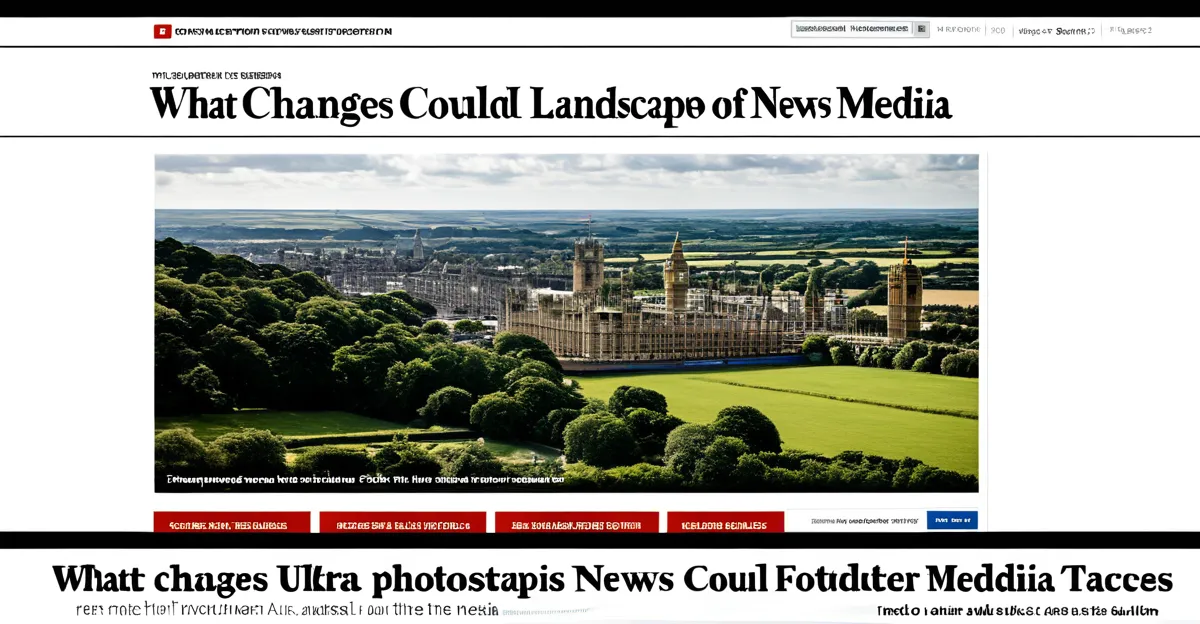Major Technological Advances Shaping UK News Media
Digital innovation is fundamentally transforming the UK news media landscape. One of the most significant advances is the rise of AI in journalism, which enables automated news gathering, content creation, and even real-time fact-checking. AI-driven tools can sift through vast data streams much faster than human journalists, identifying trends and generating concise news reports. This not only accelerates news delivery but also helps newsrooms allocate resources more efficiently.
Alongside AI, emerging news delivery technologies like mobile apps, podcasts, and immersive formats such as virtual reality are reshaping how audiences consume news. These technologies offer more personalized and interactive experiences, catering to diverse preferences and increasing engagement levels.
Also to discover : Explore the exciting world of briliantz gel blasters today!
Moreover, the integration of data analytics into editorial decision-making adds a critical layer of insight. News organizations now rely on user data and metrics to understand audience behaviors, optimize content strategies, and forecast topical interest. This blend of AI, innovative platforms, and analytics is redefining the pace and nature of news delivery, making the UK journalism sector more responsive and dynamic than ever before.
Regulatory Reforms and Their Potential Impact
Regulatory reforms in UK media are evolving to address the challenges posed by both digital innovation and traditional outlets. The updated media regulation frameworks seek to balance technological progress with safeguarding journalistic standards. Ofcom, as the UK’s primary communications regulator, plays a pivotal role by overseeing compliance and proposing policy interventions that reflect modern media realities.
This might interest you : What are the UK’s latest efforts in renewable energy development?
One key question often asked: How do regulatory reforms impact press freedom? The answer is nuanced. While stricter regulations may risk constraining the independence of journalists, the frameworks also aim to protect press freedom by ensuring ethical reporting and fostering public interest journalism. These reforms tackle issues such as misinformation and media accountability, which have become critical in the era of rapid news delivery technologies.
Debates continue around the extent to which regulation should intervene without stifling innovation. Ofcom’s involvement includes monitoring large digital platforms and traditional publishers alike to promote fairness and diversity in news dissemination. The regulator also considers the public’s right to reliable information, reflecting contemporary concerns in UK journalism laws. As media regulation adapts, it shapes an environment where free expression and responsible reporting coexist.
Evolving Consumer Behaviors and Audience Expectations
Understanding media consumption trends is vital as UK audiences increasingly favor digital and mobile-first news access. The shift from traditional print and broadcast to smartphones and tablets means news outlets must prioritize seamless, on-the-go delivery. This transformation responds to readers’ demand for real-time updates and accessibility.
A crucial aspect is the rising desire for content personalization. Audiences expect news tailored to their interests, location, and habits. Personalization engines use algorithms to curate stories, boosting reader engagement by delivering relevant material. This technology improves user experience, encouraging longer visits and repeated interactions.
At the same time, engaging younger, digitally native audiences presents challenges. These readers prefer ephemeral content, interactive multimedia, and social media integration. News organizations respond by incorporating video snippets, podcasts, and social sharing features to meet evolving expectations.
In sum, adapting to changing consumption behaviors involves leveraging data-driven insights and innovative delivery formats. By embracing personalization and mobile-first strategies, UK news media can deepen reader engagement across demographic groups, securing loyalty amid an increasingly competitive digital environment.
Tackling Misinformation and Upholding Trust
Misinformation remains a persistent threat to UK journalism, undermining media trust and public confidence. The rapid spread of false or misleading content via social media and digital platforms challenges news organizations to maintain accuracy and credibility. Fact checking has become a critical tool in this battle. Newsrooms employ dedicated fact-checkers and partner with independent verification initiatives to scrutinize claims before publication. This process, combined with real-time AI-assisted verification, helps detect inconsistencies early.
How do fact-checking tools improve news quality? They analyze content against trusted databases and prior reports, flagging potential errors or manipulations. This enhances accuracy and reassures audiences about the reliability of information. Furthermore, promoting digital literacy equips readers to critically assess sources and recognize misinformation themselves—a vital complement to institutional efforts.
Transparency also plays a key role in restoring trust. Media organizations increasingly publish their correction policies and clarify sourcing methods to demonstrate accountability. Collaborative industry approaches, including cross-platform verification standards, further reinforce confidence in the news ecosystem. Addressing misinformation requires sustained commitment to verification, education, and openness, securing the foundation of trust essential for UK journalism’s future.
Transforming Business Models for Sustainable Journalism
Sustainable journalism in the UK increasingly relies on evolving media funding approaches. Traditional advertising revenue has declined due to market fragmentation and changing audience behaviors. In response, many news organizations are adopting subscription models and membership schemes to secure steady income. These models provide direct, predictable funding and foster stronger reader loyalty.
Subscription success depends on delivering high-value, exclusive content that justifies user investment. This shift challenges media outlets to balance quality journalism with audience willingness to pay. Simultaneously, advertising strategies are being redefined; targeted ads and programmatic buying allow publishers to maximize revenue within a more competitive digital ecosystem.
Alternative funding solutions also play a pivotal role. Innovative partnerships, such as collaborations with nonprofits or tech companies, diversify revenue streams and support investigative projects. Some outlets experiment with crowdfunding or philanthropic grants to preserve editorial independence.
This transformation addresses financial sustainability while supporting quality content creation. As media funding adapts, UK journalism can weather digital disruption and maintain its public service mission effectively. The ongoing evolution underscores the necessity to innovate business models alongside technological advances and audience expectations.











